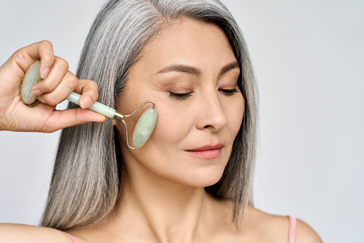Benefits of Lion's Mane Mushroom
Posted by Mike Miryala on
What comes to your mind when you hear the name “Lion’s mane mushroom?” You are probably thinking of Mufasa, instead of mushrooms. Well, as the cat is the king of the jungle in the animal kingdom, the lion’s mane mushroom is the king in the fungi kingdom.
What is Lion’s Mane Mushroom?
Lion’s mane mushroom, also known as yamabushitake or hou tou gu is a type of medicinal mushroom that contains a number of bioactive substances like antioxidants and glucans. This makes this mushroom beneficial to the body, especially the gut, brain, and heart.
These mushrooms are white in color and globe-shaped in size with long, shaggy spines, resembling a lion’s mane as they grow.
You can enjoy the lion’s mane mushroom raw, dried, cooked, or steeped as a tea. More so, their extracts are widely used in making over-the-counter health supplements.
Many health stores now sell the lion’s mane extract as supplements because the fungus and its extract have medicinal benefits to health.
Health Benefits of Lion’s Mane Mushroom
You can derive a lot of health benefits from taking the lion’s mane mushroom supplements. Read on to learn about the variety of health problems it works for:
Protects against ulcers in the digestive tract
Ulcers can form in the stomach, large intestine, or small intestine, and they’re either caused by an overgrowth of a bacteria called H. pylori, or damage of the mucous layer of the stomach due to prolonged use of non-steroidal anti-inflammatory drugs (NSAIDs).
The extract of lion’s mane mushroom, however, helps to inhibit the growth of H. pylori, hence, protecting the stomach against the development of ulcers.
More so, lion’s mane extract prevents tissue damage in other parts of the intestine. It is also effective for reducing inflammation and treating inflammatory bowel diseases like Crohn’s disease and ulcerative colitis.
One study shows that taking a mushroom supplement having 14% lion’s mane extract helped reduce symptoms in people with ulcerative colitis, and improved the quality of their lives after three weeks.
However, note that the herbal supplement in the study above included more than one type of mushroom, so don’t be quick to draw conclusions about the effects of lion’s mane.
Helps reduce symptoms of anxiety and depression
About one-third of the population in developed countries are battling with symptoms of anxiety and depression.
Many factors can trigger anxiety and depression, however, chronic inflammation is commonly implicated.
One study conducted in menopausal women showed that eating cookies made with lion’s mane mushroom caused a significant reduction in feelings of anxiety and depression.
Other animal studies found that the lion’s mane extract boosted the regeneration of brain cells and the overall performance of the hippopotamus.
Protects against Dementia
As you age, your brain loses its ability to grow and form new connections, and this is why mental functioning declines in many older adults.
However, studies have shown that Lion’s mane mushroom contains hericenones and erinacines – two special compounds that stimulate the growth of brain cells.
A study conducted in older adults showed that consuming 3 grams of powdered lion’s mane mushroom every day for a 4-month duration significantly boosted mental functioning, but the effect disappeared when supplementation ceased.
However, more human studies are needed to support the large number of animal studies that show that lion’s mane mushroom helps to improve mental functioning and protect against dementia.
Boosts recovery from nervous system injuries
The components of the nervous system, including the spinal cord, brain, and other nerves all work together to send and transmit signals that control bodily functions.
But any injury to the spinal cord or brain can be debilitating, sometimes leading to loss of mental functions or paralysis.
However, lion’s mane mushrooms have been shown by research to help speed up recoveries from these injury types. It works by stimulating the growth and repair of the nerve cells.
This supplement is also effective for reducing the severity of brain damage caused by stroke.
Animal studies have been done to prove the therapeutic effect of lion’s mane mushroom on nervous system injuries. One study conducted in rats with nervous system injuries showed that the supplement reduced recovery time by 23-41%. However, no such studies have been conducted on humans.
Beneficial for diabetes symptoms
Diabetes occurs as a result of the body’s inability to control blood sugar levels. This causes a consistent hike in the levels of blood sugar, which could become complicated, leading to nerve damage, vision loss, and kidney disease.
The lion’s mane mushrooms, however, help for diabetes management. This supplement helps to improve the control of blood sugar levels, reducing some of the side effects.
One way this supplement works is to block the activity of alpha-glucosidase - an enzyme involved in the breakdown of carbohydrates in the small intestine. The blockage hinders the body from digesting and absorbing carbs effectively, and this results in lower levels of blood sugar.
Also, the lion’s mane mushroom helps to reduce diabetic nerve pain in the feet and hands.
This supplement has a huge potential for managing diabetic symptoms, but more research is needed to back up its benefits in humans.
Reduces risk of heart disease
Factors like high triglycerides, obesity, and large amounts of oxidized cholesterol are usually implicated in heart disease.
However, research has shown that lion’s mane mushroom can counter the effect of these factors and reduce the chances of heart disease.
One study conducted in mice and rats showed that the lion’s mane extract lowers triglyceride levels and improves fat metabolism.
This supplement also prevents the oxidation of cholesterol in the bloodstream. Oxidized cholesterol tends to cause hardened arterial walls, increasing the risk of stroke and heart attack. Hence, using this supplement helps to support heart health.
It May help fight cancerous cells
Cancer is caused by damaged DNA that divides and replicates out of control. This can be debilitating and sometimes lead to death. But you can use the lion’s mane mushroom to fight cancerous cells.
Studies have shown that this extract is effective for killing cancer cells and slowing their spread.
Lion’s mane mushroom has other health benefits, including:
- Boosts the immune system
- Reduces oxidative stress and inflammation
Final Remark
Lion’s mane mushroom has bioactive compounds that offer huge health benefits. This fungi and its extracts are safe, but if you’re sensitive or allergic to mushrooms, avoid lion’s mane completely.
More studies are still ongoing to develop more practical health applications for this fungal extract.
Get all the benefits of Lion's Mane Mushroom plus 7 more Brain-Boosting ingredients with NeuroRevive, an advanced brain supplement to fight brain aging and memory decline and improve your overall brain health.

Mike Miryala, Head Pharmacist at CoBionic
You might also be interested in:
Krill Force
- Highly absorbable, tasteless Krill Oil loaded with Omega-3s and antioxidants - higher concentration of EPA and DHA than regular fish oil supplements
- Reduce Chronic Inflammation, Arthritis and Joint Pain
- May Improve Blood and Heart Health
- Support Better Brain Health
Magnesium Glycinate
- 100% Vegan Capsules with Magnesium Glycinate
- Clinically-Proven to reduces stress, elevate mood and promote better sleep
- Decreases blood pressure and leads to better heart health
- Helps regulate blood sugar and improves brain function









